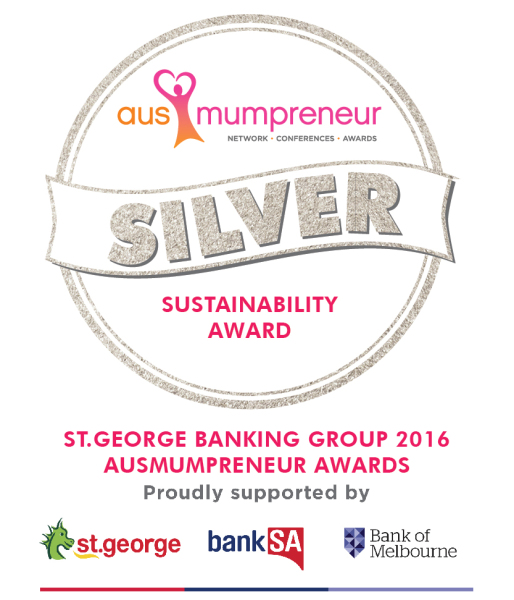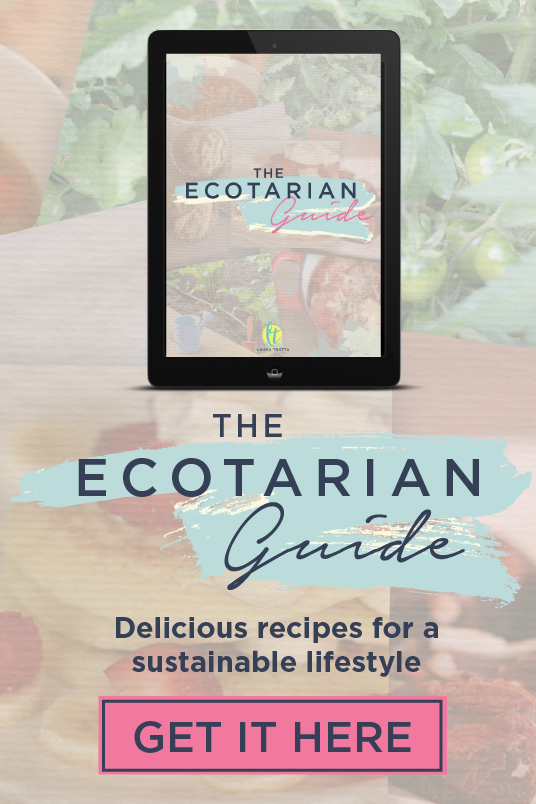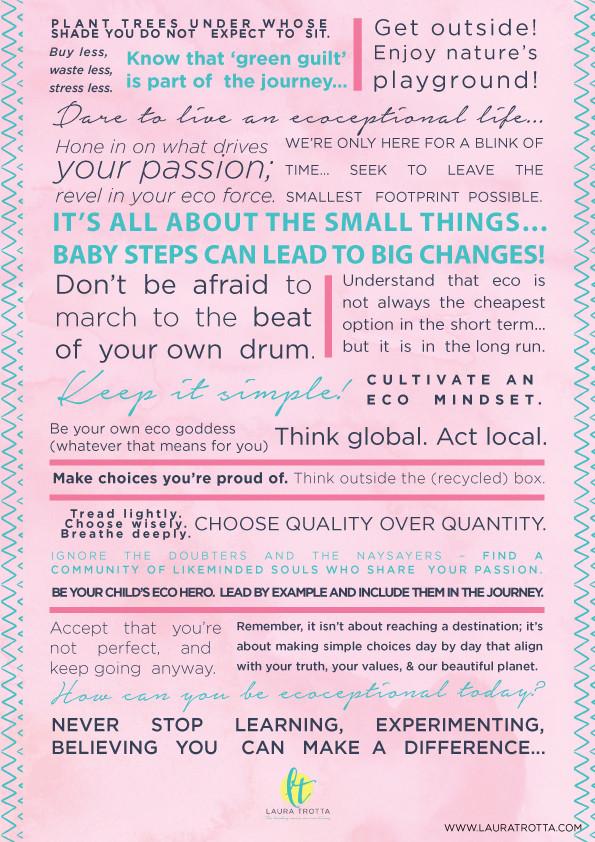Which animal poo is the best fertilizer for your organic vegetable garden? In this post we’ll uncover just that!
If you keep an eye on my Instagram and Facebook feeds, you’ll probably already know that my family has been eagerly digging into our veggie garden these last few weeks.
We live in outback South Australia so as soon as the weather “cooled down” (which really has been only to the mid-high 20’s!) a month or so ago, we were super-keen to get back into the veggie patch and get it ready for our winter crop.
But it’s not as easy as just throwing some seeds or seedlings in and hoping for the best – soil preparation is incredibly important in making sure your veggie garden is going to thrive rather than struggle. Adding in a good-quality fertilizer, namely one from animal poo (!) plays a big part in how well your garden will grow.
Podcast: Play In New Window
Why You Should Choose an Animal Poo Over Synthetic Fertilizer
There are loads of options out there when considering a fertilizer but animal manure (we call it poo at our place!) is my number one go-to. Like most things, there are commercially-produced fertilisers available but these are usually mass-produced, often include lots of chemicals and additives, and can be very expensive.
By comparison, animal poo is a much more natural option that is better for your soil and the environment and in most cases, just as easily available as its commercial counterparts.
Adding a good dose of animal poo to your veggie garden gives it a vital nutrient boost, with the poo of animals fed on grass and veggie scraps containing high levels of nitrogen which your veggie garden will love. Animal manure also increases microbial activity in the soil and improves drainage and moisture retention in sandy soils.
How to Apply Animal Poo to Your Garden
Animal manure that is semi-dried can be dug straight into your garden when preparing the soil prior to planting,=. You can also dig it in and around your crops once semi-established. Just be careful with the really fresh stuff as this can burn plants – it’s best to leave it to mature in a pile for a few weeks or so (turn it occasionally) before adding to your garden.
Another way to apply animal poo to your garden is to make a liquid tonic by soaking manure in a bucket of water for a couple of weeks and diluting the liquid before applying it directly to your garden.
Which Animal Poo is Best to Use as Garden Fertilizer?
It really depends on what you can get easily – after all, if you have to travel hundreds of kilometres to get a particular type then the time, fuel cost and vehicle emissions probably outweighs the environmental benefits (rather than ‘food miles’, I guess this is called ‘poo miles’?!)
Chicken, horse and cow poo is readily available in lots of country areas (often by the bag for a few dollars, or by the trailer load if you have one).
You can even use poos from animals like rabbits, alpacas and llamas or if you live near a zoo, you may be able to buy some elephant or rhino poo from them and have your spare cash directed to conservation projects!
Just note that not all poo is created equal.
Horse manure can contain weed seeds because horses only digest one quarter of the grass and seeds they eat. Some bird poo, like chicken, although very high in nutrients like nitrogen and phosphorous, can “burn” plants when used fresh. Sheep poo is richer in nutrients than cow or horse manure, is drier so is easily to apply, however can also contain weed seeds.
At the moment I’m a big fan of worm castings. We started our own worm farm at home just a couple of months ago, feeding our 1,000-odd new pets with all our fruit and veggie scraps.
Not only is this a good way to keep our kitchen scraps out of landfill (feeding them to our chooks or putting into the compost are other options) but the worm farm rewards us with a nutrient-rich worm ‘tea’ which we collect from the base of the farm for use on our garden.
We just dilute the tea and pour it straight on to our veggie seedlings at planting and every few weeks or so after that. We also dig in some of our homemade compost as it becomes available, which gives the soil an additional boost.
Can You Use Dog or Cat Poo To Fertilize Your Garden?
Just in case you’re contemplating using dog or cat droppings for fertilizer, it’s not recommended due to the levels of bacteria and other nasties that can be present.
For your pet waste, I recommend the EnsoPet Pet Waste Composting Unit.
The EnsoPet Pet Waste Composting Unit takes all pet waste including dog, cat, rabbit and guinea pig. It keeps your yard free of pet poo, preventing it ending up in land fill and returns carbon to the soil, rebuilding the soil on a microbial level.
Simply partially bury the EnsoPet unit into the ground, place your pet poo inside the unit (using the tongs provided), sprinkle the EnsoPet Microbial Starter Mix on top and away you go! Within a few weeks your pet poo will be returned as compost to your soil.
Click HERE to purchase the EnsoPet Pet Waste Composting Unit from Sustainahome
And it’s that easy! Animal poo is a great way to keep your veggie garden happy without resorting to commercial fertilizers. Give it a go today!
Over to You!
Do you have a favourite poo that you use in your garden? Tell us why and how you use it below!!
Like this post? You’ll also love:
How To Grow Your Own Food in Small Spaces
Five Things to Consider When Planning Your Organic Vegetable Garden
7 Reasons to Keep Backyard Chickens
Podcast: Play in new window | Download
- Sustainable Home Design- factors to consider to maximise sustainability - July 28, 2022
- Advantage and Disadvantages of Tiny Houses - May 31, 2022
- How School Strike 4 Climate is Empowering Youth to Fight for Their Future - May 1, 2022


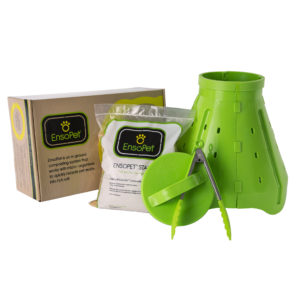
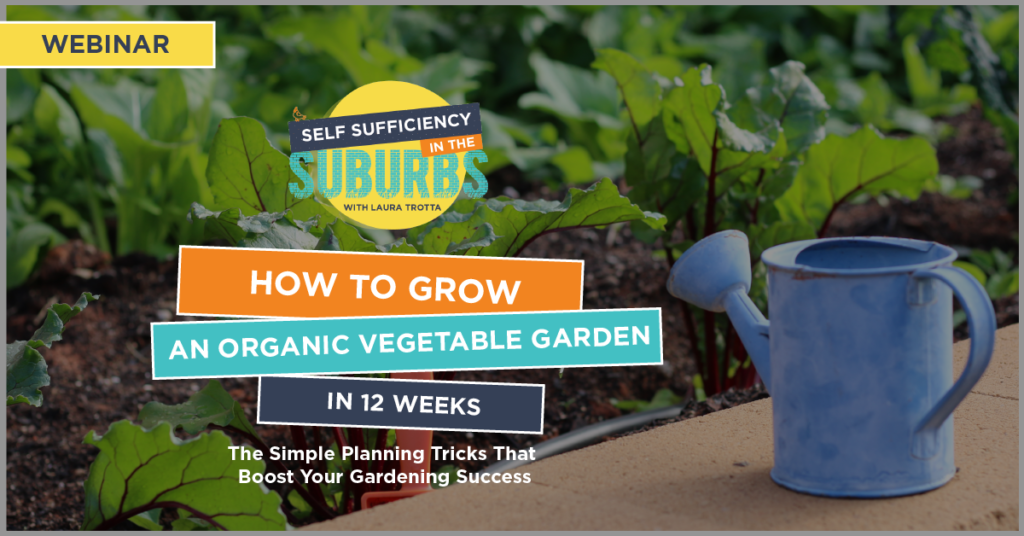
 Laura Trotta is one of Australia’s leading home sustainability experts. She has a Bachelor of Environmental Engineering, a Masters of Science (in Environmental Chemistry) and spent 11 years working as an environmental professional before creating her first online eco business, Sustainababy, in 2009. She has won numerous regional and national awards for her fresh and inspiring take on living an ‘ecoceptional’ life (including most recently winning the Brand South Australia Flinders University Education Award (2015) for the north-west region in SA and silver in the Eco-friendly category of the 2015 Ausmumpreneur Awards). With a regular segment on ABC Radio and with her work featured in publications like Nurture Parenting and My Child Magazine, Laura is an eco thought leader who’s not afraid to challenge the status quo. A passionate believer in addressing the small things to achieve big change, and protecting the planet in practical ways, Laura lives with her husband and two sons in outback South Australia.
Laura Trotta is one of Australia’s leading home sustainability experts. She has a Bachelor of Environmental Engineering, a Masters of Science (in Environmental Chemistry) and spent 11 years working as an environmental professional before creating her first online eco business, Sustainababy, in 2009. She has won numerous regional and national awards for her fresh and inspiring take on living an ‘ecoceptional’ life (including most recently winning the Brand South Australia Flinders University Education Award (2015) for the north-west region in SA and silver in the Eco-friendly category of the 2015 Ausmumpreneur Awards). With a regular segment on ABC Radio and with her work featured in publications like Nurture Parenting and My Child Magazine, Laura is an eco thought leader who’s not afraid to challenge the status quo. A passionate believer in addressing the small things to achieve big change, and protecting the planet in practical ways, Laura lives with her husband and two sons in outback South Australia. 